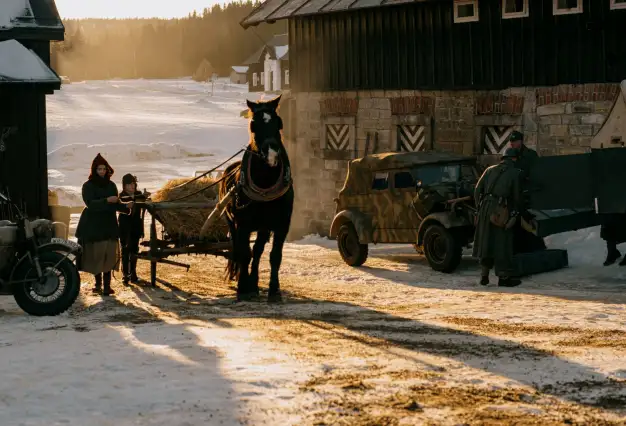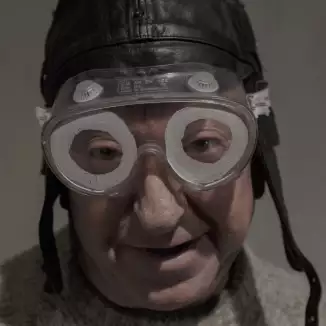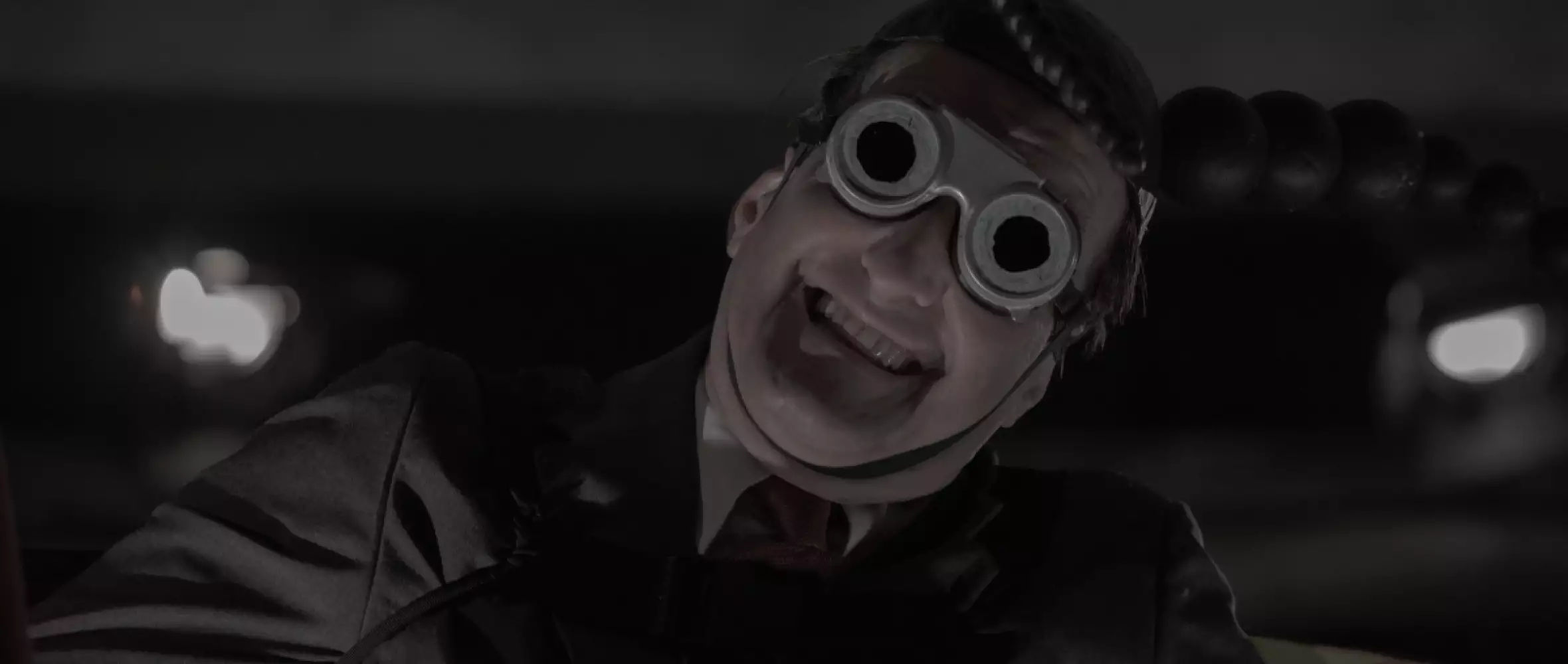
22 January 2018
The World of Jan Švankmajer’s INSECT Is an Anthill
The World of Jan Švankmajer’s INSECT Is an Anthill

Director Jan Švankmajer likes to say he is a misanthrope. This probably explains why he took inspiration for Insect, his latest (and likely last) feature film, from The Insect Play, the misanthropic comedy by Karel and Josef Čapek, written in 1922, when “Adolf Hitler, still sitting in a Munich pub, drank beer while scratching out the Jewish ancestors from his family tree” (as Švankmajer says in the film’s prologue). Insect has its world premiere at the Rotterdam International Film Festival, in January.
Article by Kamila Boháčková for Czech Film Magazine / Spring 2018
The picture opens with a group of six amateur actors meeting to rehearse the second act of The Insect Play. During the rehearsal, however, their lives begin to merge with those of their characters in the play, and the actors start behaving like insects: The amateur director/Mr. Cricket bullies to death his rival in love, Mr. Fly, and fathers a baby Cricket with the aging Rose/Mrs. Cricket. The railway man Nettle, playing the role of Parasite, devours Miss Jilly/the Larva, while the ever-so-diligent Mr. Forest rolls his ball as the Dung-Beetle.
Švankmajer is at it again, commenting caustically on contemporary civilization, which to him seems increasingly to look like an anthill. (Though he hastens to add that his film’s inner core is closer to Kafka’s The Metamorphosis than it is to the Čapek brothers’ drama.)
For years, the film treatment of Insect was on the back burner, awaiting development: Švankmajer wrote the story for it in 1971, and although the film follows that story quite faithfully, it adds several layers. The main one is documentary footage from the shoot itself, revealing the animation process and creation of special effects. Also, the film includes scenes with the actors out of character, describing their dreams directly to the camera (it is through these relaxed passages that it becomes clear how much their acting is intentionally stylized and stiff in the rest of the film). Finally, there is Švankmajer’s prologue, in which he as an author, much like in his previous film, Surviving Life, prepares the audience for what lies ahead.
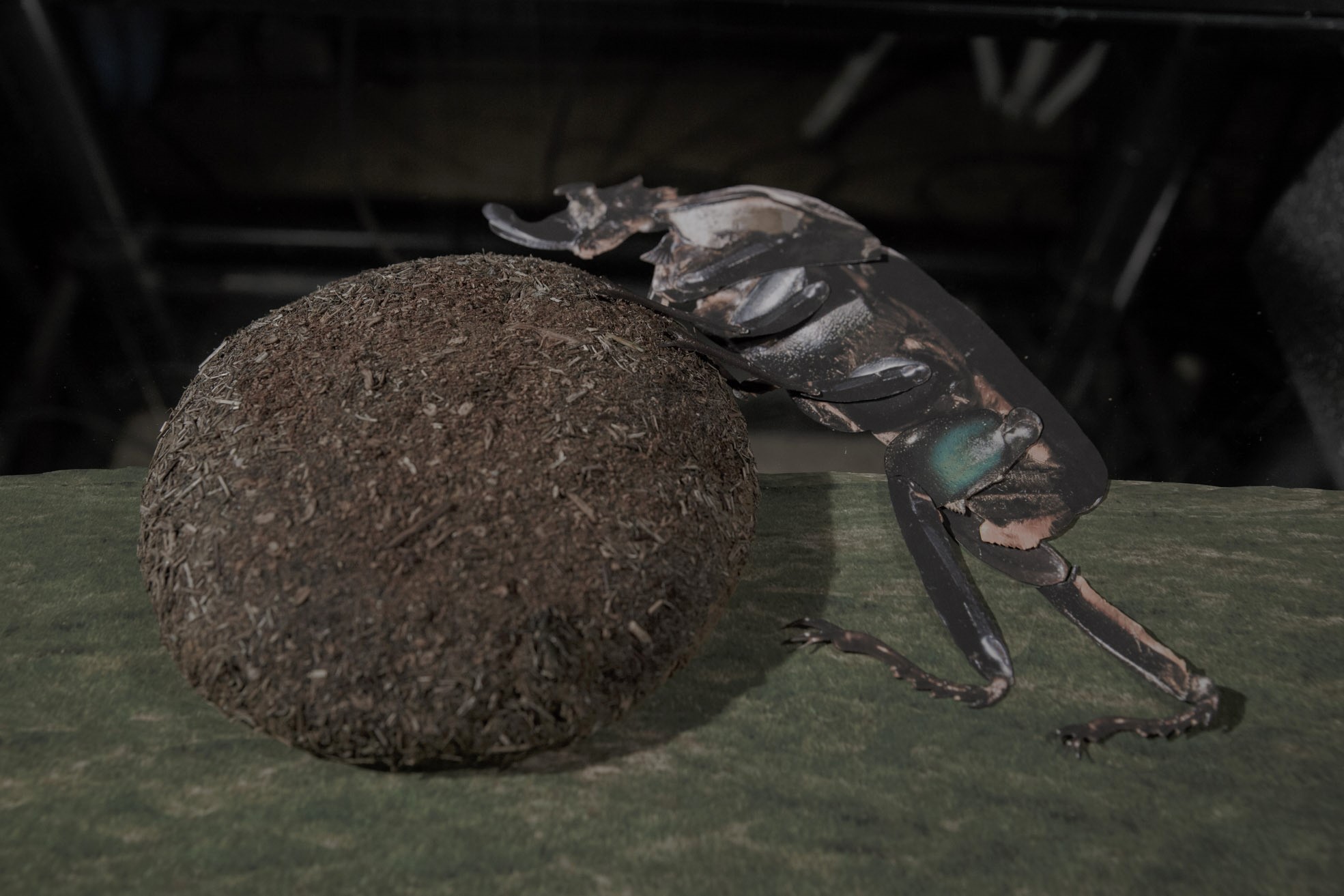
Švankmajer describes the reasons for his approach: “The structure of the film insect is quite complicated. In part, it’s a story of amateur actors, built on the blueprint of the Oedipus complex. Then there is the second act of The Insect Play by the Čapek brothers, and finally, the documentary footage from the film shoot. It also includes the retelling of dreams. I chose this form because as a surrealist I consider the creative process more fundamental than the final result. So I opened up the process to let the audience have a peek into it as much as possible without disrupting the drama of the action. In my prologues, I’m mostly attempting to attune the audience to the fact that they’re about to see an imaginative film, where nothing is as it seems, and that it therefore requires their active participation.”
The Power of Imagination
Imaginative films, as Švankmajer calls his works, depict the dark, unconscious, and magical in human beings. Imagination disturbs the boundary between reality and fantasy, reality and dream. Typically, in his films, a simple story serves mainly as the framework for a journey into the unconscious, where characters are more akin to symbols than full-blooded humans.
“I let everything I do proceed freely, as it spontaneously arises and evolves, and Insect especially was basically created in the editing room. I stand before a finished film the same way as an untouched filmgoer and try to recognize what it is that I have actually filmed.”
Insect continues the line of Švankmajer’s feature films that began with Conspirators of Pleasure (1996), in which animation slowly gives way to live action with in- tentionally stylized actors and richer dialogues. From Little Otik (2000) to Lunacy (2005) to Surviving Life (2010), the director increasingly treats the actors as if they were puppets — an emotionless material body.
Švankmajer likes to say that he casts actors in his films by the look of their mouths, tongues, and eyes, and for the shooting of Insect, he says he asked them to forget their craft. “In an imaginative film, everything has the same importance: the mise-en-scène, the costumes, the actors, the sound, the props — it can all carry meaning. Realistic films prefer dramatic action to introduce a psychological dimension. This type of ‘psychologizing’ would be out of place in an imaginative film. An actor–puppet is better suited as the bearer of an archetype, a symbol, or a persona,” Švankmajer explains. He considers David Lynch, David Jařab, Karel Vachek, and the Brothers Quaye as other creators of imaginative films.
Final Film With Several Firsts
The 83-year-old Švankmajer says this is his final full-length project, especially in light of his age. “Insect is our last feature film. The financing of a new project takes us five or six years on average. For Insect, it was seven. Film realization, including pre-production, lasts two years. 83 plus 6 plus 2 equals 91. You can’t plan that far ahead,” the filmmaker explains with his trademark self-irony.
Insect may be Švankmajer’s last feature film, but it’s the first in which he has used digital recording (to document the film shoot), and also his and his crew’s first time editing digitally. Another novelty was the decision to shoot special effects and animation scenes on a still camera. Editing ran side by side with shooting, as the Athanor studio in Knovíz near Prague houses both the editing room as well as the film studio. Altogether they spent a year and a half shooting and editing.
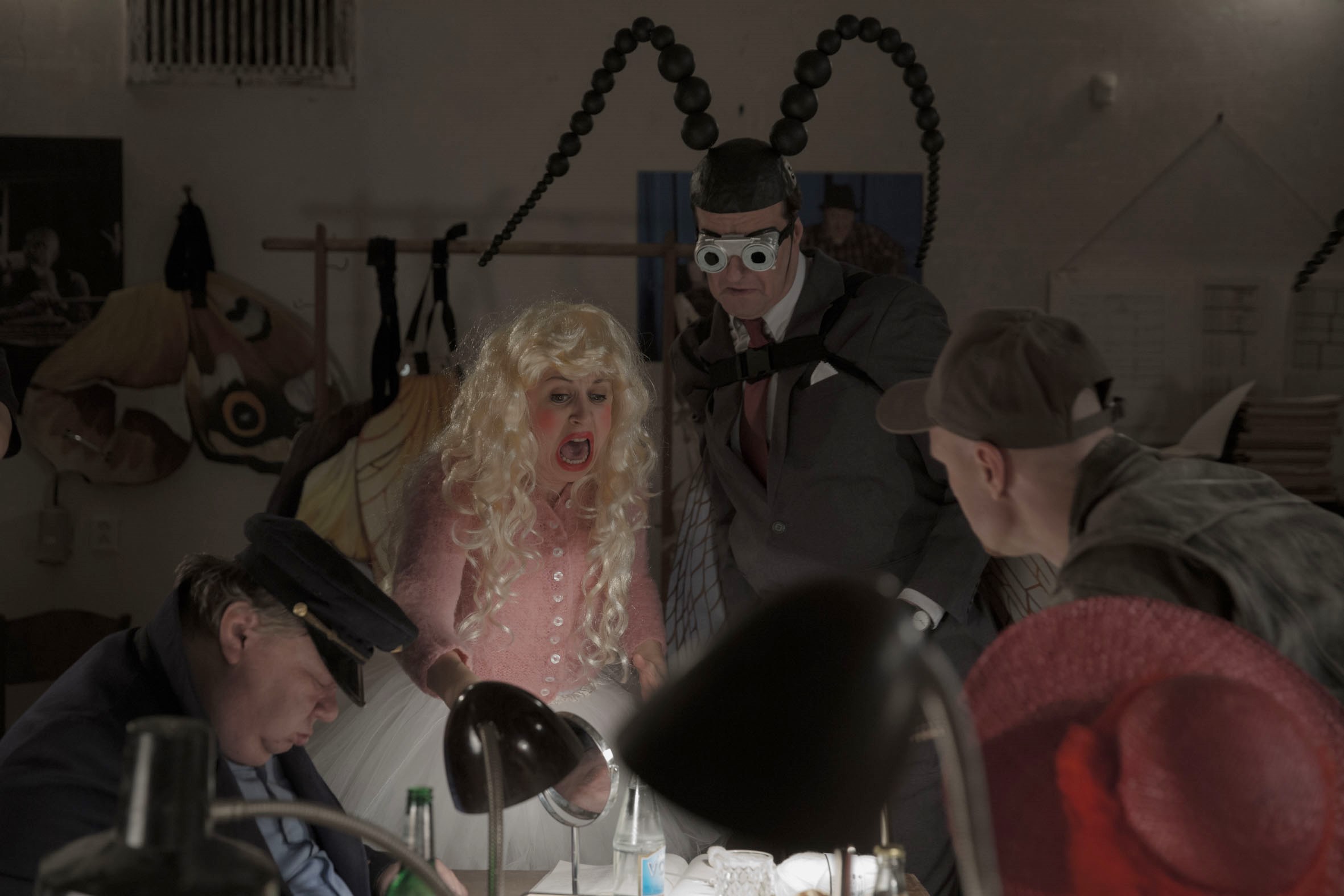
Neither Švankmajer nor his crew use a shooting script, and their working method could be described as a carefully prepared improvisation. As the director says in one of his creative Ten Commandments: “Never work; always improvise.” Švankmajer’s partnership with Jaromír Kallista is a truly remarkable one. Kallista is not only his creative partner dating back to the ’80s but is also his producer and co-owner of the Athanor film production company behind Švankmajer’s films.
Kallista elaborates on the pair’s creative process: “After 40 years working together, we’re so used to each other that we just start from the text, with thorough preparation. I keep funds in reserve for any changes and additions that come from inspiration on set, or during the simultaneous editing and work of other crew members. The creative phase doesn’t end until the picture and sound edit are finalized. It’s all the result of perfect preparations, and thanks to his pictorial visual sense Švankmajer has already done the edit in his head even before shooting begins, so he can afford to shoot additional stuff and reshape the film even after shooting has ended.”
Švankmajer confirms that he leaves the creative process open for as long as possible: “I let everything I do proceed freely, as it spontaneously arises and evolves, and Insect especially was basically created in the editing room. I stand before a finished film the same way as an untouched filmgoer and try to recognize what it is that I have actually filmed.”
“Besides, I don’t consider myself merely a filmmaker.
I make drawings, create objects, and write just as intensely.
If I don’t make any more films, I’m certainly not going to see it as some sort of fatal blow.”
Insect can pride itself on another first in Švankmajer’s filmography as well, in that the filmmakers turned to crowdfunding for the first time to help finance the film, using the Indiegogo platform. After just eight days, they reached 100 per cent of their goal, with contributions from 68 countries around the world. The funds from the campaign accounted for 15 per cent of the total budget, and according to Kallista, this allowed them to fully cover production expenses for the first time, whereas in the past the producer-director duo subsidized the films from their fees.
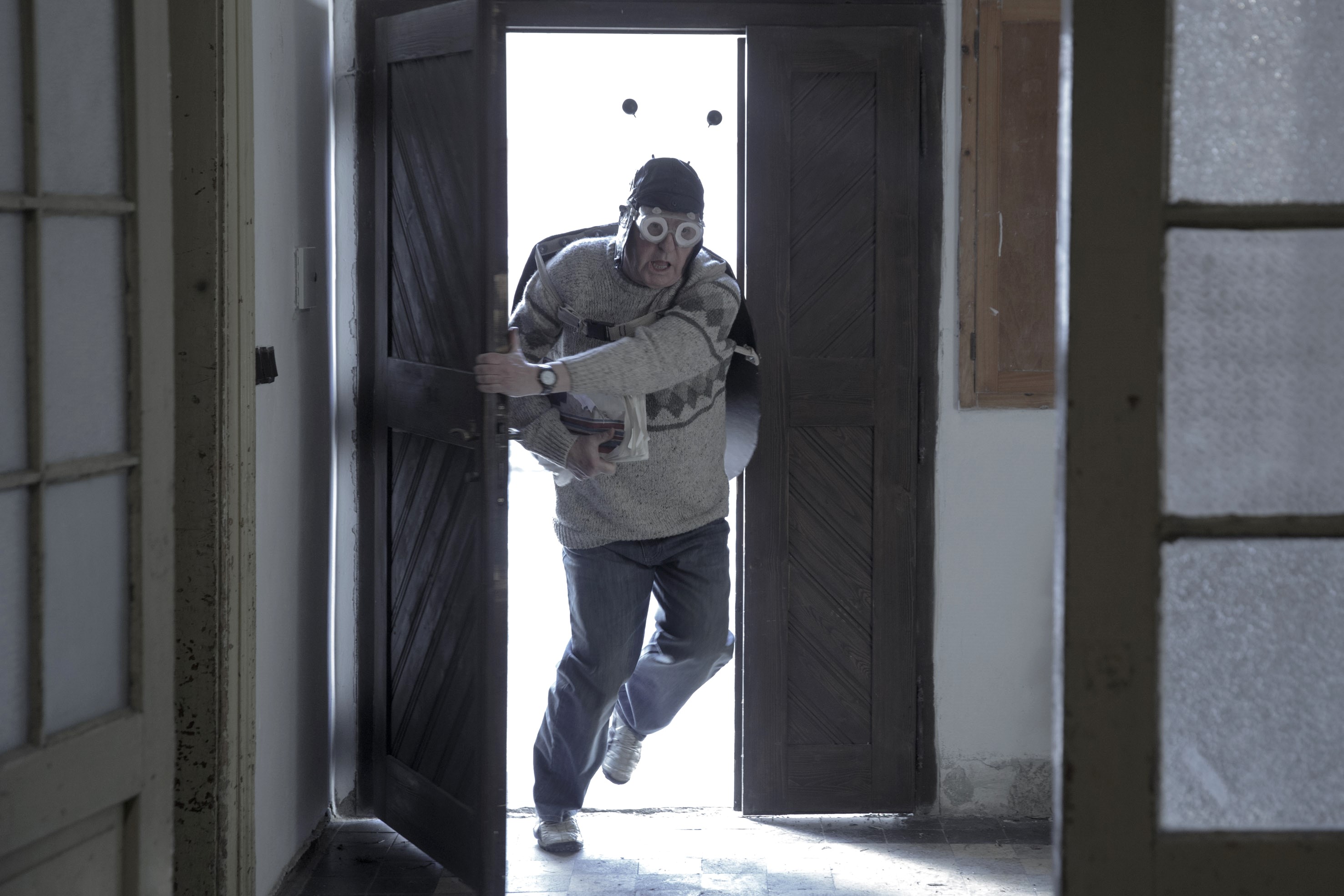
Insect is credited as a Czech-Slovak film, as part of the creative team hails from Slovakia (including actress Kamila Magálová in the role of Rose), while the Slovak Audiovisual Fund and the PubRes production company together covered 20 per cent of the budget, making Slovakia an official coproduction partner. The total budget came to 46 million Czech crowns (1.6 million euros), with Czech Television providing nearly 20 per cent in financial and material support, Athanor 28 per cent, and the rest of the circa 17 per cent split between the Czech Film Fund and the European programmes MEDIA and Eurimages.
Cynicism Instead of Pathos
The form and tone of Insect make it a black comedy, jeering at our antlike civilization of today, but also at the film itself, with its wooden, stylized acting, with its special effects and animation evoking the illusion of magic while not magical at all. By pulling the curtain back on his filmmaking methods, often disclosing his tricks to comic effect, Švankmajer seems to be making fun of the film as nothing but one big lie and illusion — and, by extension, making fun of himself as a director.
Given that this is by design his final film, it is an appealing gesture: instead of the pathos that one might expect from a director his age, Švankmajer’s last work is full of youthful cynicism. Perhaps it isn’t the end of his creative career, though.
“I’m not giving up the possibility of making a shorter film, including trying to apply automatism to film,” he says. “Besides, I don’t consider myself merely a filmmaker. I make drawings, create objects, and write just as intensely. If I don’t make any more films, I’m certainly not going to see it as some sort of fatal blow.”
Download
-
6ef6b58cd332763e.pdf
pdf 0.63 MB
Related news
Related films
Insect
Local pub in a small town. It’s Monday and the bar is closed, chairs are turned up on the tables. The pub is empty except for six amateur actors sitting in a corner. They've met to rehearse The Insect Play by the Čapek brothers.…
Related people
Jan Švankmajer
Director, Producer, Writer, Story, Set Designer, Animator


